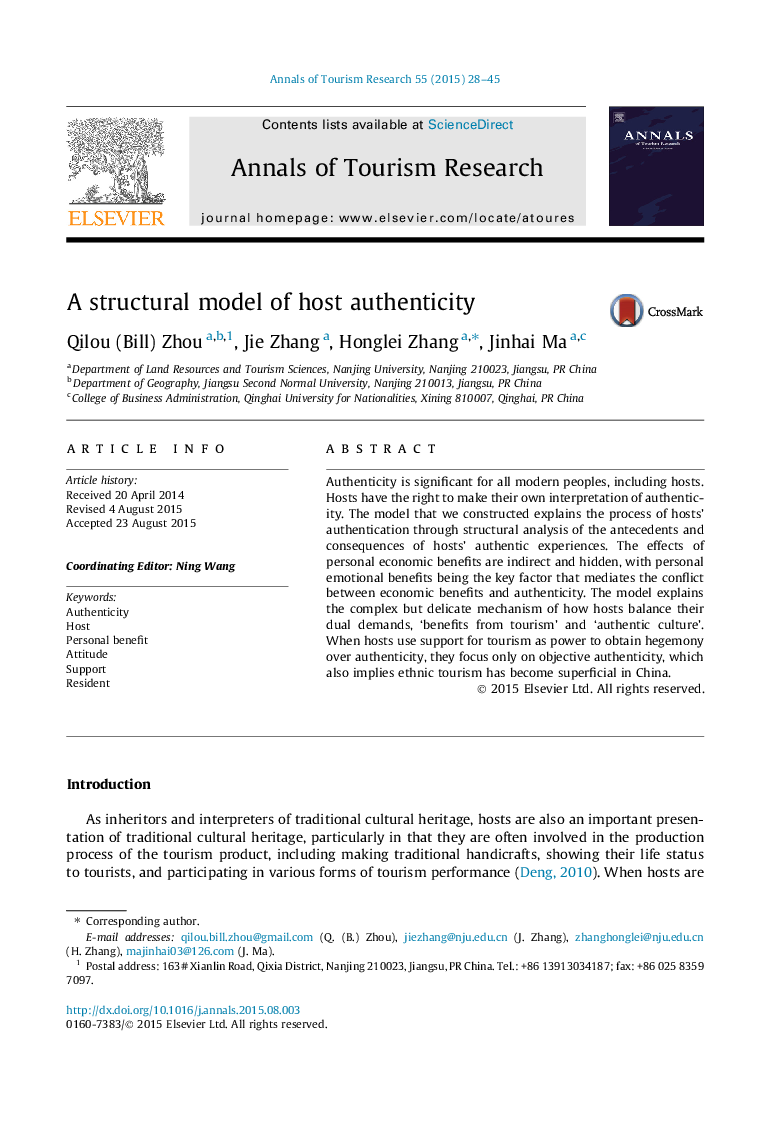| Article ID | Journal | Published Year | Pages | File Type |
|---|---|---|---|---|
| 7416813 | Annals of Tourism Research | 2015 | 18 Pages |
Abstract
Authenticity is significant for all modern peoples, including hosts. Hosts have the right to make their own interpretation of authenticity. The model that we constructed explains the process of hosts' authentication through structural analysis of the antecedents and consequences of hosts' authentic experiences. The effects of personal economic benefits are indirect and hidden, with personal emotional benefits being the key factor that mediates the conflict between economic benefits and authenticity. The model explains the complex but delicate mechanism of how hosts balance their dual demands, 'benefits from tourism' and 'authentic culture'. When hosts use support for tourism as power to obtain hegemony over authenticity, they focus only on objective authenticity, which also implies ethnic tourism has become superficial in China.
Related Topics
Social Sciences and Humanities
Business, Management and Accounting
Tourism, Leisure and Hospitality Management
Authors
Qilou (Bill) Zhou, Jie Zhang, Honglei Zhang, Jinhai Ma,
